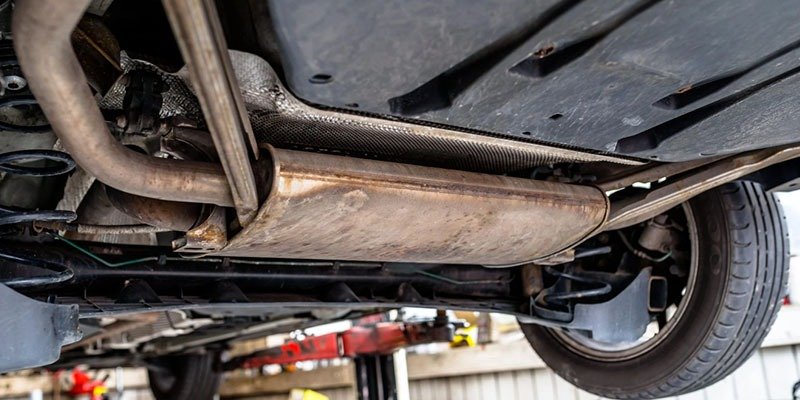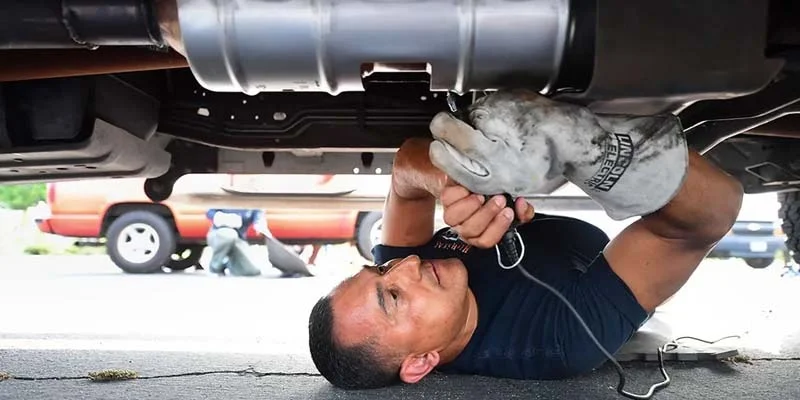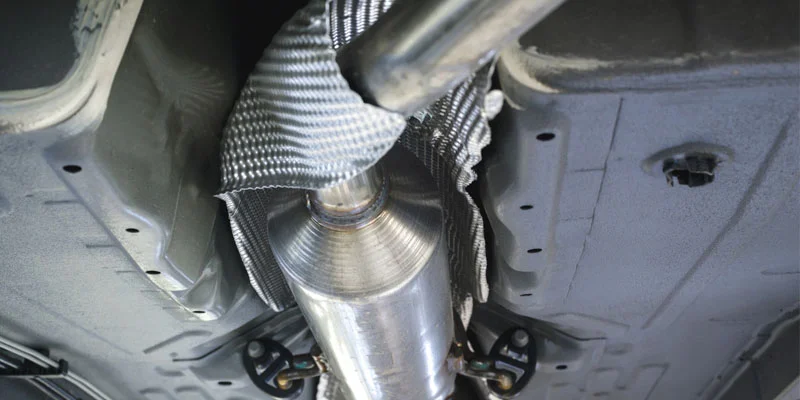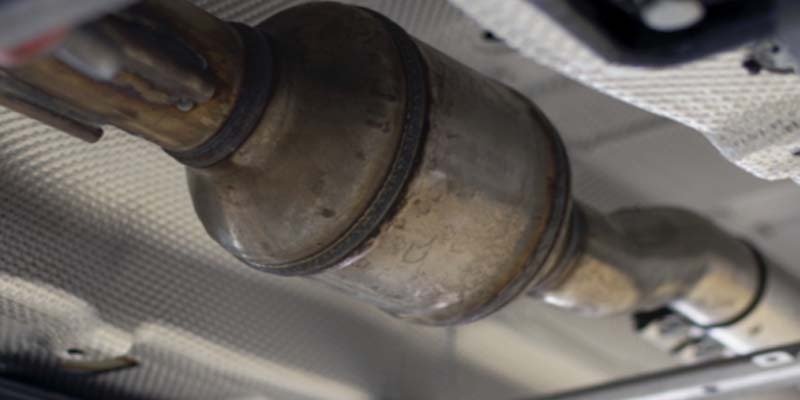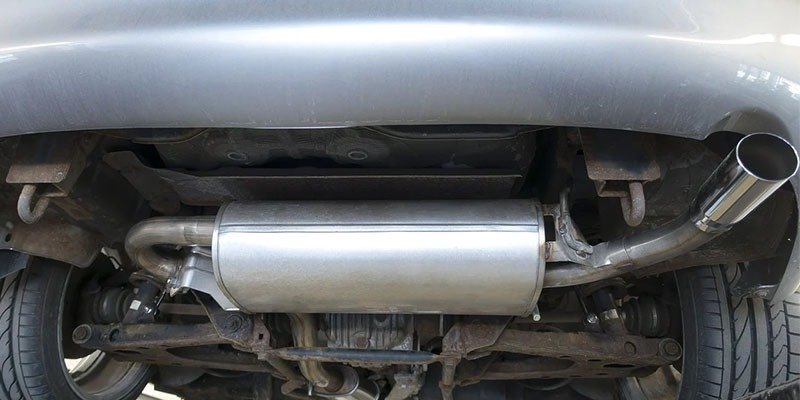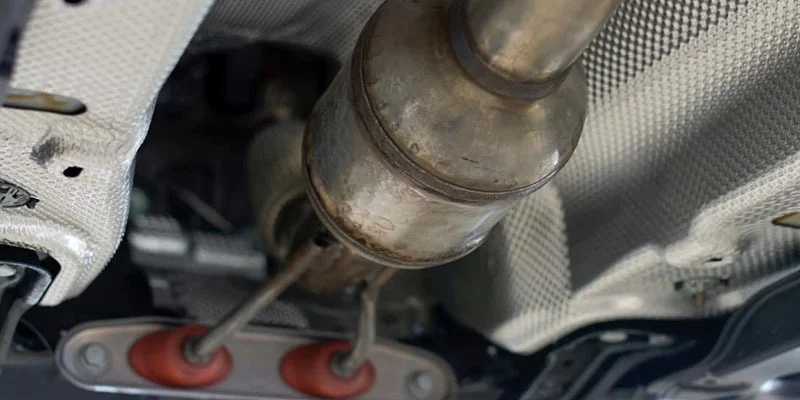Is it legal and possible to drive without a catalytic converter?
The catalytic converter is essential for reducing exhaust emissions from internal combustion engines. It is usually installed in a vehicle’s exhaust system and has become a mandatory requirement for vehicles in many countries.
In this article, we will discuss whether driving without a catalytic converter is possible. We will look at the legality of such a decision and its harmful impacts on the environment and your car engine.
So, let’s get started!
Can I Drive without a Catalytic converter safely?
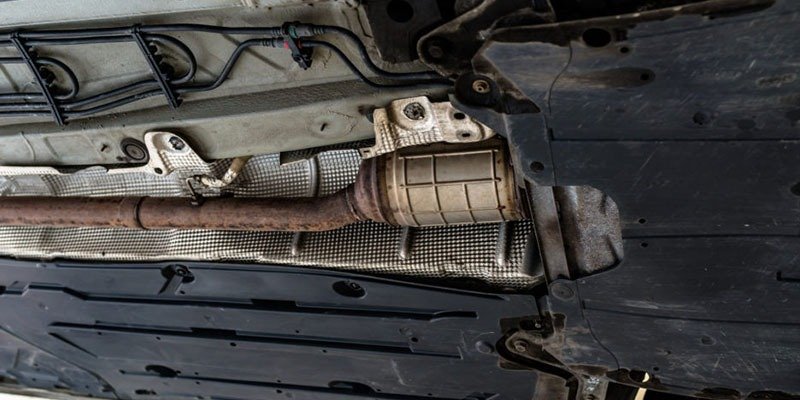
Driving without a catalytic converter can lead to legal issues. In many countries, it is illegal to drive without one due to environmental regulations. If caught, you could face hefty fines or even imprisonment, depending on where you live.
It is also important to remember that even if you don’t get caught, driving without a catalytic converter can still be dangerous for you and others on the road due to increased emissions. For these reasons, it is best to avoid driving without a catalytic converter whenever possible.
Additionally, if your vehicle fails an emissions test due to the lack of a catalytic converter, you may need help registering or selling your car in some areas.
How long can I drive without replacing the catalytic converter?
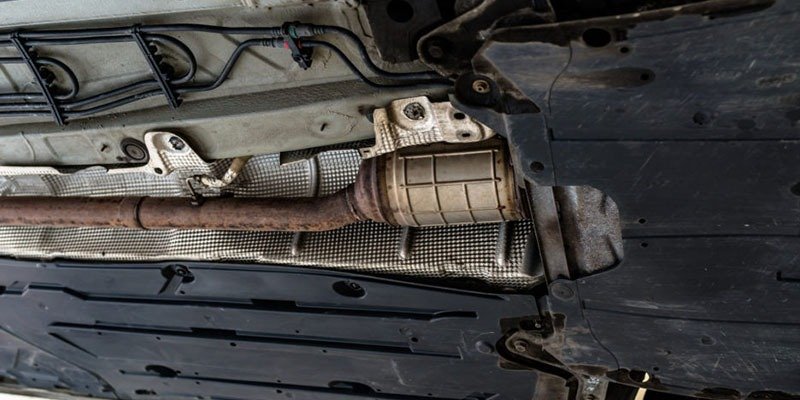
Driving without a functioning catalytic converter can be hazardous as this part is responsible for reducing emissions from the exhaust system. Depending on the legal regulations in your area, you can drive for a short distance without changing it. However, it is important to replace it as soon as possible.
When driving without a catalytic converter, you may experience an increase in fuel consumption and emissions. It is because the catalytic converter helps reduce the number of harmful pollutants released into the atmosphere. Additionally, your car’s performance will suffer as it cannot burn fuel efficiently. You may also experience a decrease in power and acceleration due to the lack of a catalytic converter.
What does a car sound like without a catalytic converter?
Loud vehicle noises are a tell-tale sign that your catalytic converter is missing. The catalytic converter is an important part of the exhaust system; when it is missing, your car will sound like it is roaring. It is especially noticeable when you start the engine or give it gas. Without the catalytic converter, the exhaust gases are not filtered properly and can cause a loud noise from your vehicle.
How do I know if someone stole my catalytic converter?
Driving without a catalytic converter can seriously affect your car’s performance. Without the cat, the oxygen sensors installed before and after it will not operate within range, resulting in engine fault codes being generated. It can lead to a reduction in engine power and fuel economy and an increase in emissions.
Additionally, you may experience a decrease in acceleration and an increase in exhaust noise due to the lack of back pressure from the catalytic converter.
1. Engine Error Code P0420
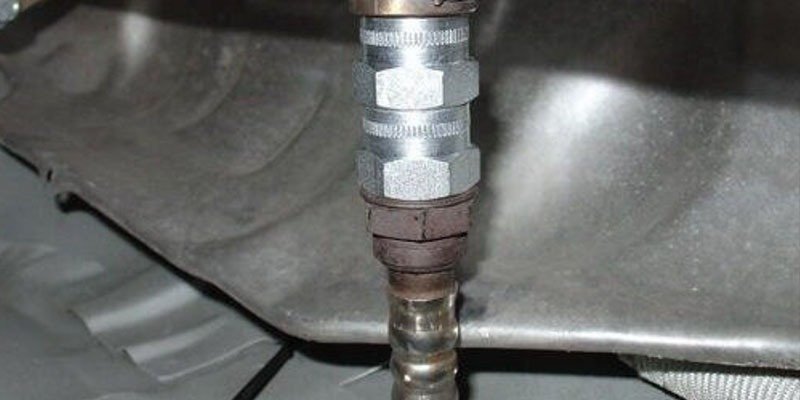
The engine light and error code P0420 are indicators of a problem with the catalytic converter. Post-cat oxygen sensors attached to the exhaust measure how effectively the catalytic converter reduces emissions.
When these sensors detect a decrease in efficiency, they will send a signal to the ECU (Engine Control Unit) to adjust the fuel mixture accordingly. This can cause a check engine light and engine trouble code P0420, indicating an issue with the catalytic converter.
To diagnose and repair this issue, it is important first to identify what caused it. At the same time, the common causes include clogged or damaged catalytic converters, faulty oxygen sensors, or even problems with other parts of the exhaust system, such as mufflers or pipes. The absence of a catalytic converter also leads to such codes.
Once you have identified the cause of the problem, you can then take steps to fix it, such as replacing worn-out parts, cleaning clogged components, or even installing a new catalytic converter. It is also important to ensure that all other components related to this issue are functioning properly before attempting any repairs. These steps will help ensure that your vehicle runs efficiently and safely for many years.
2. Increased Exhaust Smell

If your catalytic converter has been stolen, the key symptoms to look out for are a roar when starting the car and getting louder as you accelerate, sputtering sounds when changing speed, and an increase in exhaust or an unusual smell from the exhaust. If any of these symptoms appear, it is likely that your catalytic converter has been removed and needs to be replaced.
3. Roaring Sounds
If your catalytic converter has been stolen, you may be unable to tell by looking at your car. However, when you start the engine, you will immediately know something is wrong. Your vehicle will make a loud roaring sound that gets louder as you push the gas pedal. You may also notice a sputtering sound as you change speed or your car isn’t driving smoothly.
4. Lesser Low-end Torque
A noticeable reduction in the low-end torque is another indicator that the catalytic converter is missing. As we generally drive at lower RPMs, low-end torque is preferred over high-end. You enjoy an elevated driving experience with low-end torque. Removing the catalytic converter leads to an increase in horsepower, resulting in low-end torque.
What happens if you don’t fix your catalytic converter?
If you don’t fix your catalytic converter, power fuel economy and decreased performance are the two major outcomes in the short run. In the longer run, it can damage the engine.
Does having no catalytic converter hurt your gas mileage?
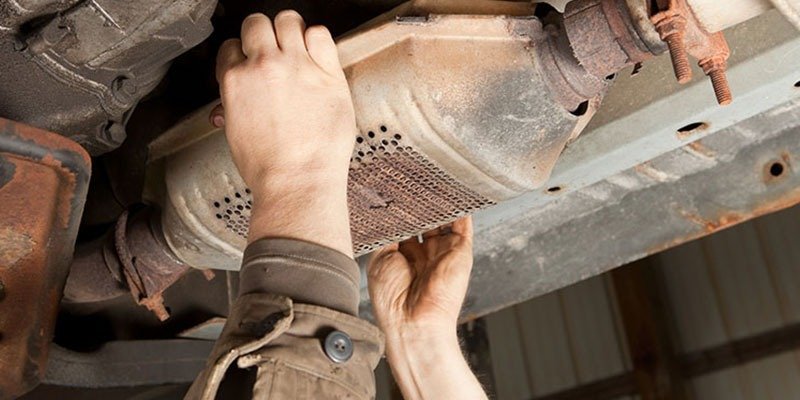
When a catalytic converter fails, one of the most noticeable effects is a decrease in gas mileage. A clogged catalytic converter can cause exhaust to become trapped in the engine, leading to increased effort and fuel consumption. If you notice a significant spike in your car’s gas usage over a short time, it may be a sign that the catalytic converter is malfunctioning.
What happens if the Catalytic converter fails while driving?
Driving a car with a bad catalytic converter can be dangerous, as it can cause your vehicle to perform poorly and even stop working altogether. The catalytic converter is a crucial component of the exhaust system. When it is not working correctly, it can cause a decrease in fuel efficiency and an increase in emissions.
In extreme cases, a completely clogged catalytic converter can prevent the vehicle from running altogether, creating potential hazards while on the road. To prevent these issues and ensure the safe operation of your vehicle, it is advisable to replace a faulty catalytic converter as soon as possible.
Even if only certain parts of the catalytic converter are clogged, there may still be a noticeable reduction in performance. Regular maintenance and timely catalytic converter repairs are important to maintain your vehicle’s safe and efficient operation.

My Name is Christopher Angels, and I am a postgraduate in mechanical engineering. Cars have always excited me as a child, and soon I decided to dive into the world of cars by pursuing mechanical engineering. I also worked as a Mechanic for over 3 years to understand Cars’ anatomy and how each part contributes to its working.
My Name is Christopher Angels, and I am a postgraduate in mechanical engineering. Cars have always excited me as a child, and soon I decided to dive into the world of cars by pursuing mechanical engineering. I also worked as a Mechanic for over 3 years to understand Cars' anatomy and how each part contributes to its working.

